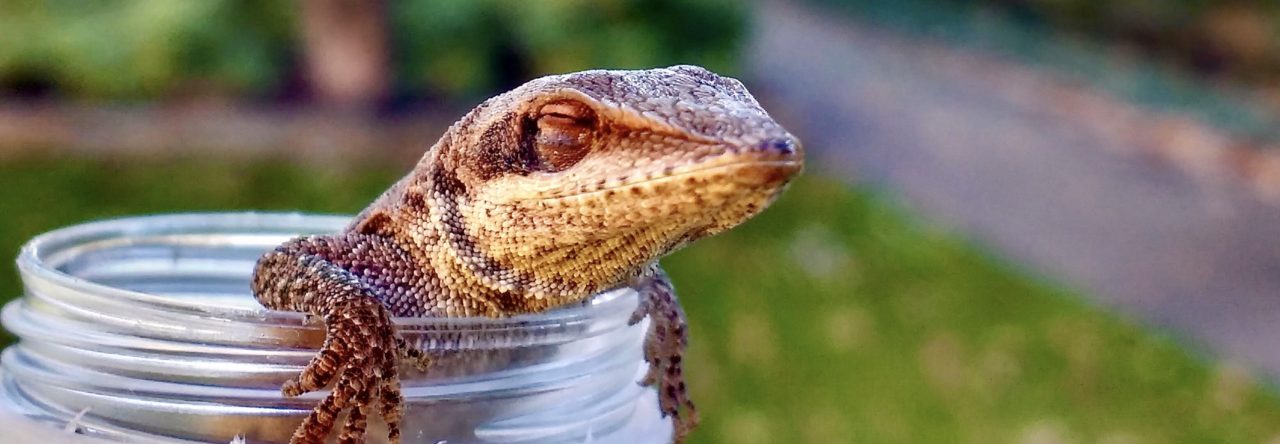Does anyone out there have good info or maybe a paper or two about the vitamin A requirement for Anolis lizards? We are having minor eye issues in our collection from time to time and when given vitamin A supplements, the problems seem to go away. They are always provided with the same vitamin/mineral/calcium suppliments as our other lizards, but I thought that maybe their requirement for the vitamin was greater than the other animals in our collection. Sometimes even the babies come out with “gunky” eyes, and we are not sure of the cause. Does anyone else ever have this problem?
Any help would be much appreciated. We are also looking for “normal” blood level values for these lizards, as our studies have shown that they have a much higher calcium level than we expected, especially in females.
Thanks for any help,
Will
- A Request for Photographs of A. smallwoodi and A. ricordii - March 29, 2012
- Delayed Pictures for Photo Contest - February 2, 2012
- Anolis Roquet Males Displaying On Exhibit - August 27, 2011


Rich Glor
I posted on the vitamin A issue previously. Our problems have diminished since we started feeding our crickets vegetables that are high in vitamin A and dusting crickets more frequently prior to feeding a multi-vitamin. We had some babies hatch out last year with gunky, swollen eyes, but haven’t seen this problem yet this season. There is at least one paper out there on this topic, but it’s not particularly informative because they didn’t treat their animals or offer any guidelines on how to avoid the problem [pubmed link].
Majid Saleem
It sounds like you’re doing a great job monitoring the health of your Anolis lizards. Vitamin A deficiencies can indeed cause eye issues in reptiles, so it’s possible that these lizards have a higher requirement than others in your collection. It might be worth consulting a herpetologist or a veterinarian who specializes in reptiles for more specific guidance on vitamin A requirements and normal blood levels. If you’re seeing consistently high calcium levels, especially in females, it could be linked to dietary factors or reproductive cycles. Checking for any research papers on these topics might provide more insight.
Also, if you need any pet supplies or specific supplements for your lizards, be sure to check out our store! We have a range of high-quality products tailored for reptiles to help keep them healthy and thriving. Best of luck, and I hope you find the information you need!
williambaugher
We offer our crickets fresh greens, carrots, and sweet potato daily as well as a cricket gut load formula that includes spirulina, various nuts, bee pollen and dozens of other nutrient rich foods ground to a tiny powder and we offer the anoles multivitamin and calcium suppliments with almost every meal (3 out of 4 meals per week). We offer a large variety of prey items, and we even offer fruit other foods not commonly offered to anoles. We have still had consistent problems over the past 5+ years in our collection ranging from gunky eyes, nictitating mambrane issues, blindness, weight loss from inability to eat, and, without hand feeding, death (or euthanasia). Obviously this doesn’t happen to too many of our lizards, but it still presents a problem and we cannot find an easy way to resolve the issue. We have tried medications and everything and I do believe that it is vitamin A related. What other things is the anole community doing to boost Vitamin A levels? And reguarding a previous post, does anyone know the appropriate calcium level present in the blood for Anolis sp.?
Thanks for the response,
Will Baugher
Allison DeVan
In the past, eye problems were also an issue with my anoles until we began treating them monthly with an oral vitamin A supplement. We dilute Metagenics Mycelized Vitamin A (1 drop = 5000 IU retinyl palmitate) in water (approximately 20 drops of water to 1 drop vitamin A), shake vigorously, and then dot each anole’s mouth with the solution.
Devon Woods
OK …seems like you have the “gunky eyes” under control now. I was just going to comment that Vitamin A in general is good for vision in humans. So, maybe the same benefit in the Anolis lizards.